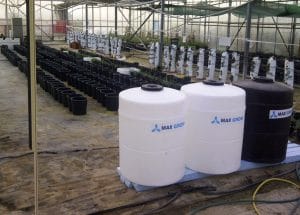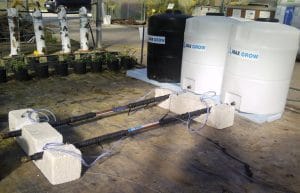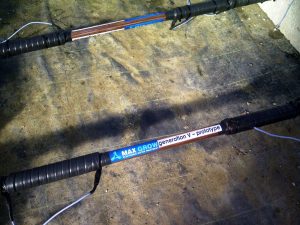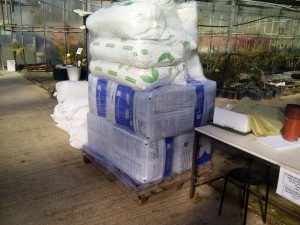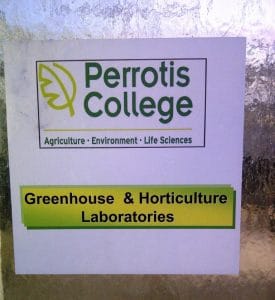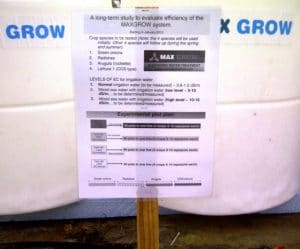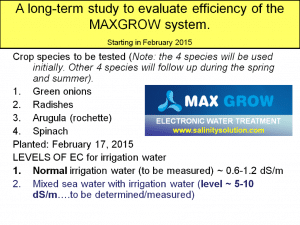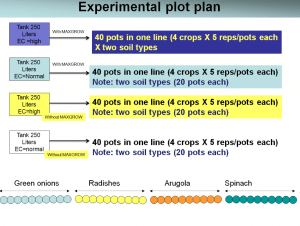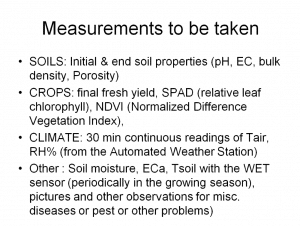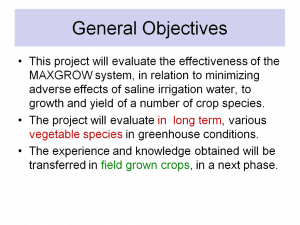Need Help?
Do you need support? Our team can help you!
info@maxgrow.tech
(00357) 24 25 24 26
CERTIFICATIONS
SCIENTIFIC CERTIFICATION
The positive effects of “MAX GROW” have been demonstrated at the Aristotelio University of Thessaloniki, department of Water and Ground Management, with a thesis that its results are reported below, where olive oil trees grew with extremely saline water (Ec 33.000 μS / cm). Furthermore, a scientific study in the American Farm School of Thessaloniki has already prooved the efficiency of the device with astonishing results in vegetable crops using high salinity water.
UNITED ARAB EMIRATES FOOD & AGRICULTURE AUTHORITY
EUROPEAN WATER RESOURCE CERTIFICATION
In the link at the bottom of the page you may find the official publication of the scientific research implemented by Dr. Gertsis and PhD Candidate Mr. Zoukidis in the peer-reviewed scientific journal “European Water”. The scientific research deals with the effectiveness of Max Grow in vegetable production in greenhouse with saline water.
The link for the scientific article is the following:
http://www.ewra.net/ew/issue_59.htm
Published Article N. 45
Alternatively, you may download the article here:
Executive Summary of 1st Greenhouse Study (American Farm School of Thessaloniki – May 2015)
Evaluation of the irrigation water treatment technology (MAXGROW) on its effects on the yield of vegetable crops
Dr. Athanasios Gertsis
Department of Environmental Systems Management, Precision Agriculture Laboratory, Perrotis College,
American Farm School, Thessaloniki, Greece, e-mail: agerts@afs.edu.gr
Executive Summary of Greenhouse Study – 2015
During the last two decades, irrigation water quality has become worst in terms of increasing its salinity and causes severe problems in many cultivated crop species, resulting in lower yield. In addition, the scarcity of irrigation water due to overuse is another limitation for increasing food and feed production. This study evaluates a water treatment technology (MAXGROW) for its potential to minimize effects of saline irrigation water and its possible effects of crop productivity. A greenhouse study in pots was undertaken using two substrates (a sandy loam soil and a mixture of pumice and a composted material in 4:1 v/v ratiol), four vegetable species (green onions, spinach, radishes and arugula) irrigated with two qualities of irrigation water (a highly saline with EC~8 dS/m and a regular irrigation water with EC~0,6 dS/m) treated and untreated with the MAXGROW technology. The results (comprehensive Table 1) showed an increased yield caused by the treated saline water in almost all species and the two substrates. The potential of this device was shown to be very promising. Additional studies in greenhouse are in progress currently for continuous evaluation using more plant species, growth substrates and soil types and higher salinity level irrigation water.
Table 1. Yield results for each substrate, irrigation type and plant species
| SUBSTRATE | Irrigation type | Crop species | Fresh Yield (g/pot) | Statistical significance* |
| Pumice+Compost | Saline water-Treated | Arugola | 195,4 | ab |
| Pumice+Compost | Regular water-Treated | Arugola | 203,6 | a |
| Pumice+Compost | Saline water-Non treated | Arugola | 180,2 | ab |
| Pumice+Compost | Regular water-Non treated | Arugola | 171,8 | b |
| Sandy loam soil | Saline water-Treated | Arugola | 176,2 | a |
| Sandy loam soil | Regular water-Treated | Arugola | 135,4 | b |
| Sandy loam soil | Saline water-Non treated | Arugola | 124,6 | bc |
| Sandy loam soil | Regular water-Non treated | Arugola | 106 | c |
| Pumice+Compost | Saline water-Treated | Green onions | 106,8 | ab |
| Pumice+Compost | Regular water-Treated | Green onions | 81,8 | b |
| Pumice+Compost | Saline water-Non treated | Green onions | 115,2 | a |
| Pumice+Compost | Regular water-Non treated | Green onions | 92,6 | ab |
| Sandy loam soil | Saline water-Treated | Green onions | 142,8 | a |
| Sandy loam soil | Regular water-Treated | Green onions | 97,4 | b |
| Sandy loam soil | Saline water-Non treated | Green onions | 101,4 | b |
| Sandy loam soil | Regular water-Non treated | Green onions | 142,8 | a |
| Pumice+Compost | Saline water-Treated | Radish | 70,6 | b |
| Pumice+Compost | Regular water-Treated | Radish | 82,2 | ab |
| Pumice+Compost | Saline water-Non treated | Radish | 106,6 | a |
| Pumice+Compost | Regular water-Non treated | Radish | 89,4 | ab |
| Sandy loam soil | Saline water-Treated | Radish | 129,6 | a |
| Sandy loam soil | Regular water-Treated | Radish | 70 | b |
| Sandy loam soil | Saline water-Non treated | Radish | 34,8 | c |
| Sandy loam soil | Regular water-Non treated | Radish | 63,4 | b |
| Pumice+Compost | Saline water-Treated | Spinach | 77,4 | ab |
| Pumice+Compost | Regular water-Treated | Spinach | 57,2 | b |
| Pumice+Compost | Saline water-Non treated | Spinach | 100,6 | a |
| Pumice+Compost | Regular water-Non treated | Spinach | 63,6 | b |
| Sandy loam soil | Saline water-Treated | Spinach | 129,2 | a |
| Sandy loam soil | Regular water-Treated | Spinach | 112,4 | a |
| Sandy loam soil | Saline water-Non treated | Spinach | 130,4 | a |
| Sandy loam soil | Regular water-Non treated | Spinach | 110,2 | a |
* Treatments not connected by same letter are significant different
The saline water (mixed sea water and irrigation water to bring the EC to ~ 8dS/m) treated with the MAXGROW device increased statistically the yield in many cases while in all cases caused the very high yield. Then only crop species that was not affected by irrigation type was spinach in the sandy loam soil. In the sandy loam soil substrate, the saline water treated produced the highest yields in all four crop species (spinach, radish, green onions and arugula), while in the Pumice+Compost substrate the yield was among the top in all crop species but not as high and significant as in the sandy loam substrate.
ONGOING SCIENTIFIC RESEARCH (February 2015)
Our company, is solely sponsoring the most realistic scientific research project implemented by any company worldwide till today, regarding the proof of the effectiveness of our technology, both in low electrical conductivity water as well as extremely saline water. The research takes place in the greenhouse laboratory of Perrotis College, of the American Farm School of Thessaloniki.
Initially four different crops are irrigated with high salinity and “normal” water (water with low Ec), treated from Max Grow (generation V models). Green onions, spinach, radishes and arugula (rochette) in two different soil types. In order for the differencies to be shown, apart from the scientific monitoring and the final research results, the exact same crops with the exact same water quality but without the max grow treatment will be irrigated in the same greenhouse. This way, the comparison in growth, colour and development will be obvious, even by non-experts. The layout of the experiment is described on the following graphic images, at the bottom of this page.
The project is organized and supervised by soil-scientist Dr. Athanasios Gertsis. Dr. Athanasios Gertsis was recently honored for his scientific work and contribution to innovative agriculture practices by the former President of the Hellenic Republic, Mr. Karolos Papoulias.
